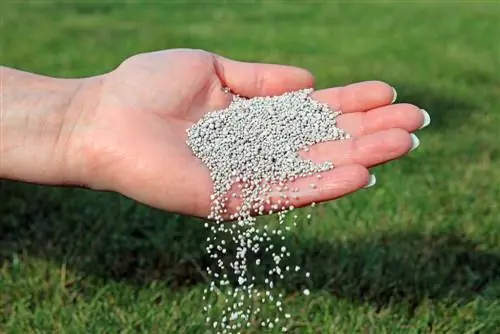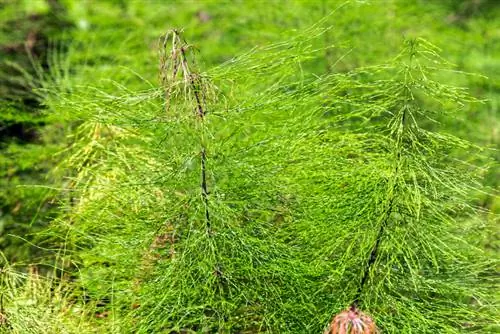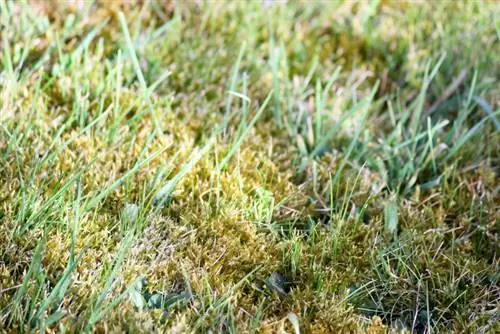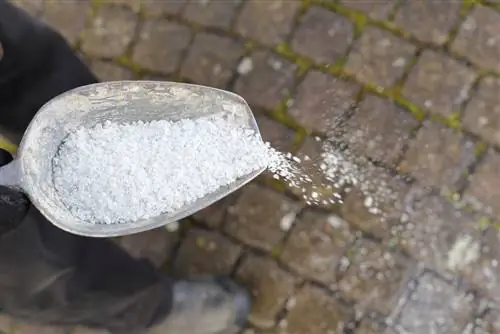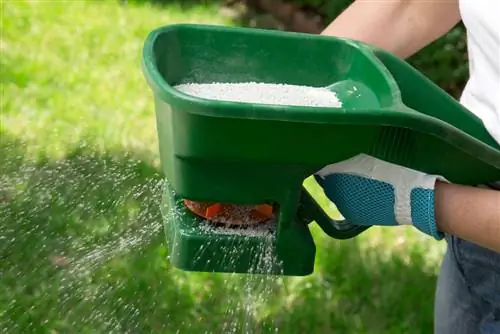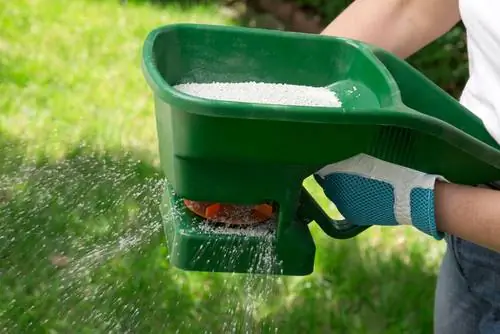- Author admin leonars@hobbygardeners.com.
- Public 2023-12-16 16:46.
- Last modified 2025-01-23 11:21.
You can recognize iron deficiency in the garden by the changing leaf color of ornamental plants and lawns. This is no longer bright, rich green, but rather yellowish. If plants suffer from a lack of iron, weeds and moss can increase. However, iron fertilizer is only partially suitable for direct weed destruction. You can find out why this is the case in the following article.
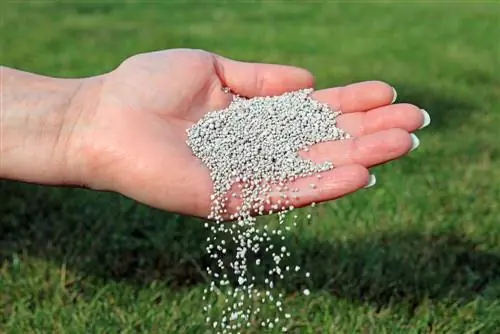
Is iron fertilizer effective against weeds?
Iron fertilizer is not an effective weed killer because it tends to have negative effects on plants and acidifies the soil. Targeted weed control is not possible with iron fertilizer and its use can also be harmful to the he alth of humans and animals.
Why do plants need iron?
Despite the fact that plants only need iron in very small amounts, a deficiency quickly becomes noticeable. If there is too little of the trace element, the leaves turn yellow, but the leaf veins remain bright green. This is known in technical jargon as chlorosis.
Those who are particularly susceptible to iron deficiency are:
- Citrus plants
- Magnolias
- hydrangeas
- Roses
- Rhododendron.
Does iron fertilizer help directly against weeds?
Iron fertilizer is not suitable for killing weeds. Although this is often recommended by retailers for exactly this purpose, it is unsuitable as a pure weed killer or lawn fertilizer against weeds.
If a soil sample shows that there is an iron II sulfate deficiency that causes weeds and mosses to thrive excessively, you should only use the product with great caution. The highly corrosive agent can be harmful to humans and animals. In addition, iron fertilizer further acidifies the soil, so that undesirable plants that have specialized in these conditions find conditions that are continually improving. In particular, the moss, which loves acidic soils, spreads quickly despite application.
How dangerous is iron fertilizer?
Even if the name suggests otherwise: iron fertilizer is not a fertilizer. This is a chemical preparation with toxic ingredients. When iron-II sulfate comes into contact with water or liquids, it reacts with other gases as well as corrosive sulfuric acid.
Iron fertilizer is often recommended by specialist retailers to combat moss and weeds, but is just as harmful to other plants. Please keep this in mind when using. Strictly follow the instructions printed on the packaging. Protective clothing must also be worn when spraying, even if this is not always explicitly stated. Contact with the product can cause painful and dangerous irritation to the eyes and skin.
Tip
You should under no circumstances use iron fertilizer to combat weeds that have spread in the cracks of paving stones. The iron II sulfate can cause ugly stains on the plates that cannot be removed.

